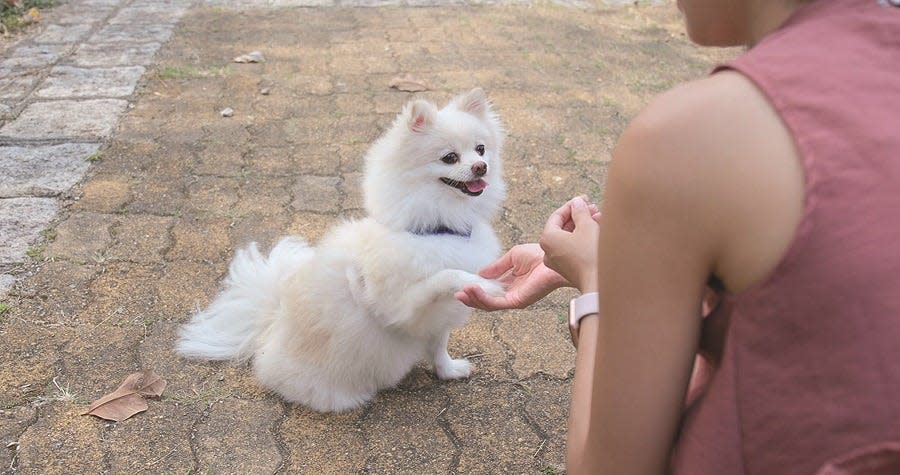Getting through the first weeks of living with a new puppy in honor of National Puppy Day

Congratulations! You have a new puppy!
Now what?
Our tips will help you lay a foundation for a happy life together over the next 10-plus years. Here are nine things to start teaching your new friend right away.
• Learn to love a crate. It's a safe spot at home or away, a resting place and a travel carrier on the road or in the air. Furnish it with a comfortable pad to lie on, treats to find inside and a toy for comfort and entertainment. Place it in an area where people are coming and going so he can learn the family routine during the day, and in the bedroom at night so he can smell and be comforted by your presence. Teach kids that the crate is off-limits to them — no crawling inside or sticking hands into it. Teach your pup that whining and barking don't open the crate door. Walk away calmly and let him out only when he's quiet.
• Where to potty. When you arrive home from the shelter or breeder, let your pup relieve herself before going indoors. Offer praise and a treat when she does. Pups need to go out to potty immediately after every meal, after waking up, after 15 to 20 minutes of play and just before bedtime.
• Stay close. Indoors, keep him on leash with you to ensure he can't get into anything he shouldn't. Young pups don't need free run of the house. That's when they get into trouble.
• Touch and sound of love. Sit with your pup and talk to her. As you do, handle her paws, rub her ears, look inside and sniff the ears, rub her belly and touch her tail. This helps her learn that it's OK for you to touch her all over, which will be helpful for later grooming appointments or vet examinations.
• Going to the vet is fun. Your puppy's adoption or purchase contract may require a veterinary visit within 48 hours of bringing him home to confirm that he's in good health. Make it a "getting to know you" visit with nothing more than a gentle physical exam, a weigh-in and lots of treats from the veterinarian and staff. Schedule vaccinations or spay/neuter surgery for a later visit.
• Meals happen on schedule. Regular meals make it easier to housetrain puppies, reduce the risk of obesity and ensure that you notice changes in appetite. Measure out regular amounts instead of filling the bowl to the brim.
• Take food from hands. For the first week or so, hand-feed to help bond with your pup and help her learn to take items gently. Give a piece when your puppy is sitting or looking at you or if she follows when you walk away with the bowl. Ask for a spin or other behaviors before giving a piece. Hand feeding teaches puppies self-control and sets you up as the person to look to for good things.
• Sleep tight. Even when you're asleep, your puppy is bonding with you. He should sleep in the same room so he can smell you, but he's too young to be on the bed. Take him out to potty, then put him in his crate with a treat. He may whine or bark, but once you get in bed and turn out the light, he should settle down. If he's young, you may need to take him out to potty in the middle of the night. Be kind, take him where he needs to go and put him back in his crate. Nighttime isn't playtime!
• Learning starts now. If your puppy is 10 to 12 weeks old and has had two sets of inoculations, sign up for puppy class. The critical learning period lasts until pups are 14 to 16 weeks old, and they can learn a lot during that time about navigating the world and interacting with people.
Do you have a pet question? Send it to askpetconnection@gmail.com or visit Facebook.com/DrMartyBecker. Pet Connection is produced by veterinarian Dr. Marty Becker, journalist Kim Campbell Thornton, and dog trainer/behavior consultant Mikkel Becker. ©2023 Andrews McMeel Syndication
This article originally appeared on South Bend Tribune: Pet Connection: Laying a foundation for a long life with a new puppy

